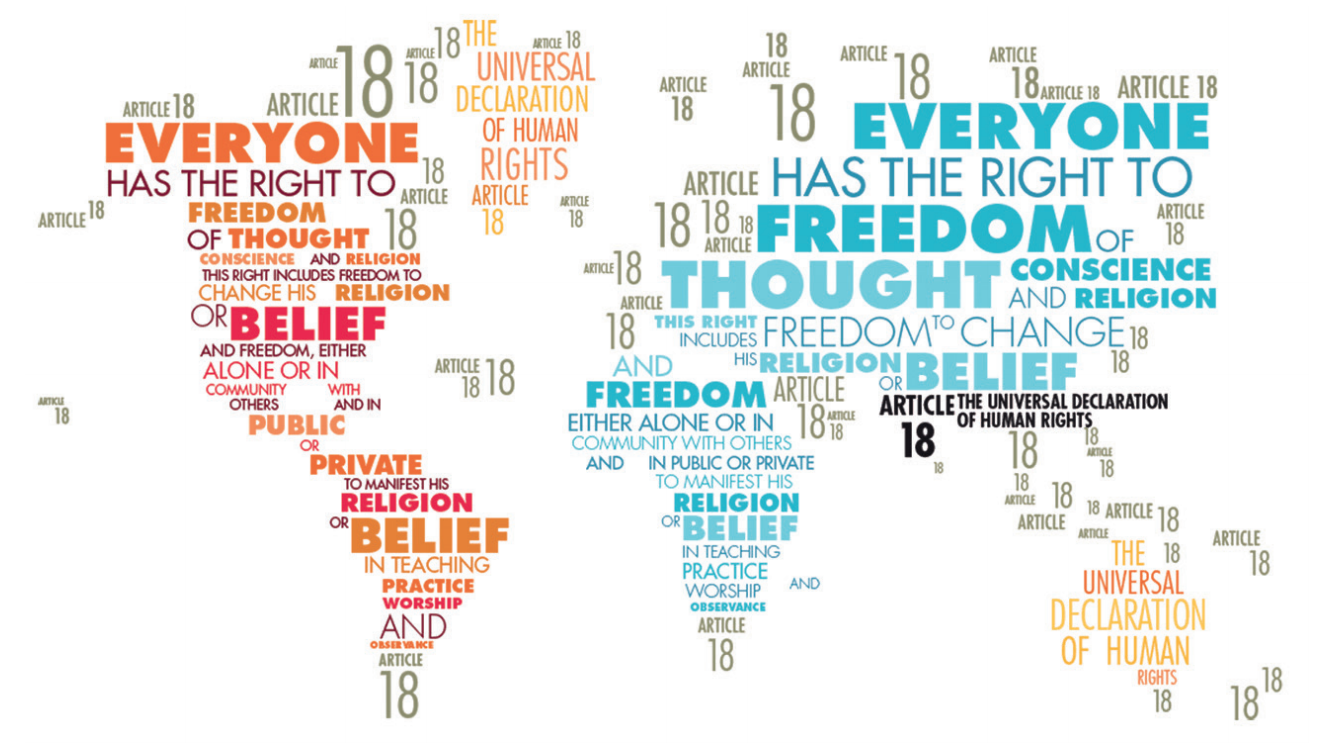Report: 10 of the Worst Countries for Religious Freedom
The list included the U.K., but it did not include several of the worst nations for Christians such as Nigeria, Syria, North Korea and China.
The U.K. All Party Parliamentary Group issued a report this month listing 10 of the worst countries for religious freedom. It is entitled “Article 18: From Rhetoric to Reality.” The issuing group consists of certain Members from the U.K. House of Commons and House of Lords. The 58-page report cites current violations of Article 18 of the Universal Declaration of Human Rights (UDHR), which protects religious liberty. Article 18 was adopted on Dec. 10, 1948 by the United Nations.
The report found that almost 80 percent of the world’s population lives in countries with “high” or “very high” levels of restrictions and/or hostilities towards certain beliefs. It notes that “acts of intolerance involving religion or belief are on the rise globally.”
Ten of the Worst Countries for Religious Freedom, and the Religions Affected
Eritrea: Evangelical Christians
Egypt: Coptic Christians
U.K.: Jews and Muslims
Russia: Jehovah’s Witnesses
Saudi Arabia: Atheists and Shia Muslims
Iran: Bahá’ís
China: Falun Gong
Vietnam: Hoa Hoa Buddhists
Myanmar: Rohingya Muslims
Bangladesh: Hindus
These offenses take place in two ways: direct State denial and State failures to protect this right.
In Eritrea, which is part of the Horn of Africa and formerly part of Ethiopia, authorities detain and torture evangelical Christians. “There are credible reports of female Christian prisoners being beaten on their wombs, allegedly to prevent them from bearing children,” the report says.
In Egypt, ISIS has killed or injured hundreds of Coptic Christians since June 2016. The Egyptian government won’t grant the Christians licenses to build churches and the police often refuse to look into harm against them. Over 550 Coptic girls were abducted, converted to Islam and married since 2011. ISIS released a now-famous video showing the killing of 10 Coptic Christians on the beach.
The number of anti-Semitic incidents in the UK rose by more than a third to record levels in 2016. Attacks against Muslims in London increased from 343 incidents in 2013 to 1,260 by 2016.
In July 2016, the Russian government instituted severe restrictions on religious freedom. Russia banned Jehovah’s Witnesses in July 2017. Officials brought 181 cases against them. Officials raided their meetings. Possession of religious texts resulted in prosecution. There is credible evidence that officials planted evidence.
In Saudi Arabia, atheists “are liable to imprisonment, corporal punishment, and even execution under ‘apostasy’ laws.” Ahmad Al Shamri, a 29-year-old man, was sentenced to death in 2017 on charges of atheism and blasphemy. Officials also arrest and sometimes execute Shi’a Muslims.
Global Patterns
Hate speech is appearing in school textbooks against certain religions. Human Rights Watch found that “students in Saudi schools are being taught hatred toward all those perceived to be of a different faith or school of thought.” Jews and Christians are labeled “’unbelievers’ with whom Muslims should not associate.”
Blasphemy laws exist in several countries. A Pakistani Christian man, Nadeem James, was sentenced to death in September after being charged by a close friend with blasphemy for sharing social media content with him.
Counter-terrorism laws are used to crack down on religion. Last year, five Christian members of a house church in Iran were arrested at a picnic and charged with “acting against national security.”
The daughter of a North Korean underground church leader recalled life after escaping into South Korea. “My discovery could cost me my life. I was afraid to touch the Bible, but I couldn’t just leave it there. To me all those stories and ideas were so interesting. But I realized it was dangerous. My father always emphasised not to share anything with anyone else.”
The report takes a broad view of religious repression. It is critical of President Trump’s 90-day ban on refugees from seven Muslim countries. It accuses the French government of carrying out “‘discriminatory’ house raids and arrests on Muslims.”
In Eritrea, authorities detain and torture evangelical Christians.
While the list of oppressive countries included the U.K., it did not include several of the worst nations for Christians such as Nigeria, Syria, North Korea (other than a short reference elsewhere in the report) and China. The report contains a long section on how to combat discrimination against Muslims in the U.K. This is surprising since London has a Muslim mayor.
The report contains a section listing what steps the U.N. is taking to stop the oppression. It provides guidance for countries on how to protect religious freedom. It ends with a list of groups around the world fighting for religious freedom.



